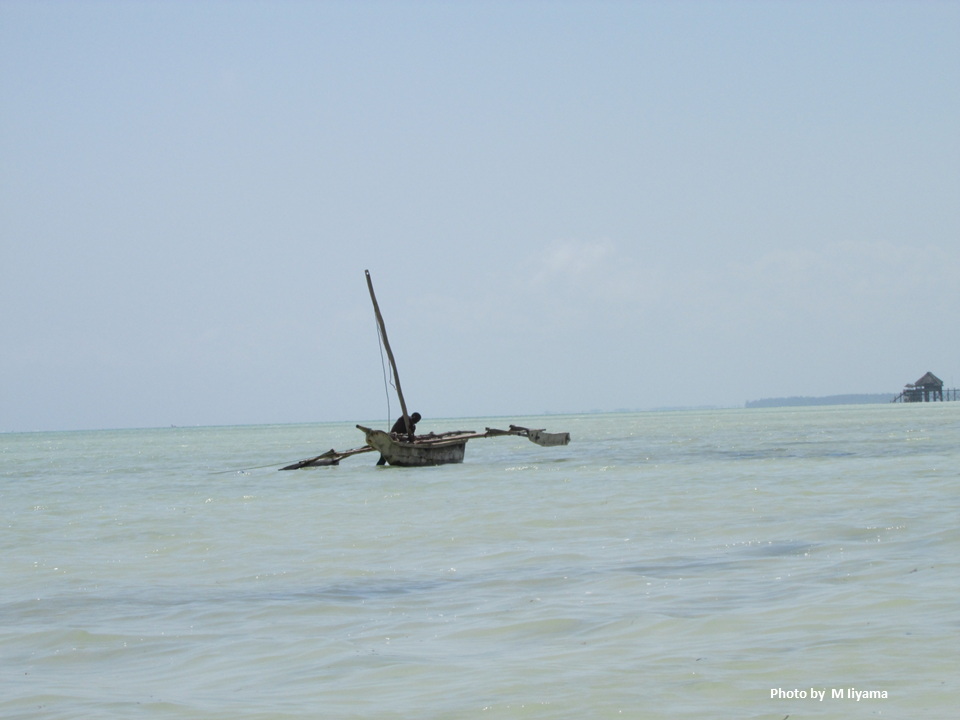Pick Up
1338. Cumulative Impacts on Global Marine Ecosystems Projected to Double by the Mid-21st Century

1338. Cumulative Impacts on Global Marine Ecosystems Projected to Double by the Mid-21st Century
Marine ecosystems face numerous pressures, including human demand for seafood, marine and coastal infrastructure, transportation, and resource extraction, as well as nutrient and chemical runoff from various agricultural, industrial, and urban activities on land. Furthermore, climate change is dramatically altering ocean temperatures and other properties. These anthropogenic pressures threaten the health of marine ecosystems, affecting the physiology, morphology, and life histories of organisms, as well as the presence of species and habitats, ultimately jeopardizing the benefits and services obtained from healthy oceans.
Planning for a sustainable future requires predicting the distribution of cumulative impacts from multiple pressures. A paper published in Science predicts that the cumulative impact of human activities on the world's marine ecosystems will double by the mid-21st century, and that future impacts will be uneven across regions, with the highest average impacts expected in both tropical and polar regions.
The study mapped the future cumulative impacts of climate (water temperature, air heat index, sea-level rise), ocean chemistry (ocean acidification, dissolved oxygen), terrestrial (nutrient inputs, light pollution, coastal population density), net primary productivity (NPP), and fisheries (fishery biomass loss) pressures on marine habitats at 10km resolution based on climate scenarios for the mid-21st century (approximately 2050). As a result, the global cumulative impact of human activities on marine habitats is projected to increase by 2.2 times under the SSP2-4.5 and by 2.6 times under the SSP5-8.5. Future impacts are expected to be uneven across regions, with the highest average impacts expected in both tropical and polar regions. In tropical regions, impacts are projected to increase by approximately three-fold between 2041 and 2060.
Ocean warming and inadequate fisheries management are the most influential factors across all regions and habitats, so minimizing the projected increase in cumulative impacts requires mitigating the effects of climate change and implementing policies and management designed to improve fisheries management.
Due to the diverse human uses and associated pressures in coastal areas, and the increased vulnerability of many coastal habitats to various pressures, the cumulative impacts on some coastal habitats are predicted to be much greater. Salt marshes and mangroves are particularly vulnerable to sea-level rise, and this pressure is predicted to play a dominant role in the future impacts on these habitats. Furthermore, because salt marshes and seagrasses are sensitive to extreme temperatures, this pressure is likely to be a major driver of future impacts on these habitats. These severe impacts are likely to be felt by the ecosystems affected by these changes. Prioritizing management actions targeting habitats that are impacted by these disturbances and the key drivers of their impacts will most likely improve marine health in these coastal areas.
Model uncertainties, particularly in the spatial failure to predict the future distribution and intensity of noise pollution, invasive species, habitat destruction due to some fishing practices, marine plastics, coastal hardening, drought and salinity changes (for coastal habitats), and marine structures such as offshore wind and oil platforms, lead to underestimation of the cumulative impacts of anthropogenic activities. Disturbances related to shipping, aquaculture, offshore energy, etc. are likely to increase in the future and may contribute significantly to future cumulative impacts. This could potentially lead to a decline in the kelp forests. Furthermore, while this analysis did not consider species-level impacts, the projections of significant increases in water temperature and ocean acidification are of particular concern to corals and other invertebrate groups (mollusks, echinoderms, cephalopods, and crustaceans).
Importantly, these findings emphasize the need to constantly assess cumulative impacts and map them to enable informed, strategic policy and decision-making about improving overall ocean health and providing ecosystem services to people. Focusing on a single issue or specific location can lead to missing the kelp forest for the trees.
(Reference)
Benjamin S. Halpern et al., Cumulative impacts to global marine ecosystems projected to more than double by midcentury, Science (2025). https://www.science.org/doi/10.1126/science.adv2906
Contributor: IIYAMA Miyuki, Information Program
